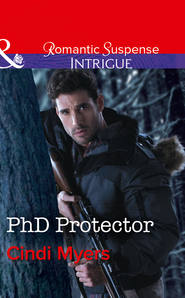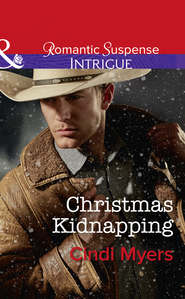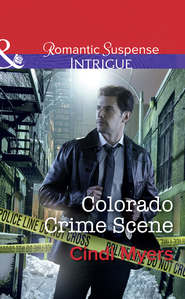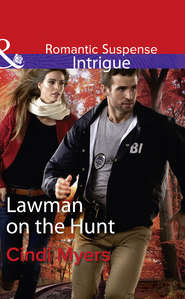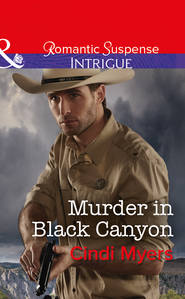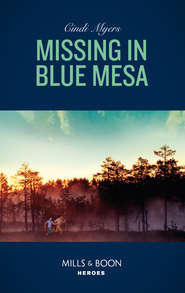По всем вопросам обращайтесь на: info@litportal.ru
(©) 2003-2024.
✖
Her Cowboy Soldier
Автор
Год написания книги
2019
Настройки чтения
Размер шрифта
Высота строк
Поля
“So, you liking teaching?” his dad asked after a while.
“Yeah, I like it. The kids are interesting. Good kids, most of them.”
“I never figured you for a teacher. I always thought you wanted to be a rancher.”
Josh told himself that wasn’t a note of accusation in his dad’s voice. “Most ranchers these days have day jobs, don’t they?” he said.
Mitch nodded. “A lot of them. I’ve always managed without that, though your mom worked at the bank for a while.”
Josh remembered those years, the house empty when he got off the school bus in the afternoons, his mom at the bank and his dad working on the ranch. He hadn’t minded having the house to himself for those few hours, hadn’t even minded starting dinner and doing the chores his mom assigned him. But his father had minded. Mitch’s pride had suffered from knowing his wife had to work to support the ranch. The day cattle prices rose enough to cover their debts without her salary, he’d ordered her to give up her job, and she’d done so, though Josh sometimes wondered if she missed that taste of independence.
But she was the daughter of a rancher. She’d been raised to support the family business, and doing anything different may never have crossed her mind.
“Shipping the calves is always easier than handling the steers.”
The sudden shift of topic didn’t surprise Josh. His dad was always most comfortable talking about the ranch. About work. Mitch removed his hat and ran his thumb along the worn leather band. “That’s my least favorite job, shipping them, not to mention giving such a big cut to the feedlot.”
“I’ve been reading about these new portable operations,” Josh said. “They bring everything right to the ranch in an eighteen-wheeler. The ranchers come together in a co-op and own the unit, so they cut out the middleman. They get a bigger cut of the profit and it’s less stressful on the cattle—more humane.”
“Yeah, I’ve heard about those. But they sound way too expensive to me. And what do you do if the thing breaks down?” He replaced his hat on his head. “Time to get back to work.”
Josh clenched his teeth, swallowing angry words. Did his dad dismiss all his ideas simply because they came from Josh? He pretended to want his son’s help with the ranch, but had never once implemented any idea Josh brought to the table, or even seriously considered them. Josh didn’t know why he bothered to keep trying.
He swung up into the saddle, struggling to control the skittish horse. The rest break hadn’t done anything to calm Pete. The animal sidestepped as they neared the pen, where Josh’s job was to help usher the next batch of calves driven by Ben and Tomas into the chute.
“It’s okay, boy,” Josh crooned soothingly. “Everything’s all right.” He leaned forward to run a gentling hand along the gelding’s neck, but forgot he no longer had a hand. As soon as the metal of the hook touched the horse’s flesh, it panicked, twisting and bucking as it fought to rid itself of this alien rider.
Josh fought to stay with the horse, but felt himself slipping, falling. He kicked free of the stirrups and covered his head as he hit the ground, facedown. Sharp pain cut through his body as a trio of calves raced over him, their fright fueled by the horse’s antics.
“Son, are you all right?” Firm hands gripped his shoulder and turned him to his side. He looked up into his father’s pale face. “Don’t move. Let me check you out.”
“I’m okay.” He pushed aside his father’s probing fingers and staggered to his feet, brushing dirt and muck from his clothes. He’d feel the bruises tomorrow, but nothing was damaged, except his pride.
“You’re done here today,” his father said. “Get on up to the house and get those cuts seen to.”
Josh wiped his hand across the side of his face and realized he was bleeding from a gash there and another on his arm. “Take the ATV,” his dad said. “Tomas will bring Pete back.” Ben held the horse a little ways from them. The animal stood, legs splayed, glaring at Josh.
Josh started to argue that he could stay and keep working, but what would be the point? He was acutely aware of the others’ eyes on him, the hands’ expressions guarded, his father’s scrutiny equal parts concern and annoyance. Mitch saw Josh as a liability. Someone to be looked after, who couldn’t be trusted to do a man’s work.
Josh retrieved his hat from the dirt and stalked to the ATV. Thankfully, it started with no problem, and he gunned it away from the holding pens. But instead of heading to the house, he set off on a faint track to his favorite spot on the ranch. He left the dust and commotion around the shipping pens and headed across a series of low hills toward a distant knot of trees.
As the noise of bawling calves, clanging gates and shouting men receded, Josh’s shoulders began to relax, and he eased his grip on the ATV’s throttle. He reached a grove of scrub oak and cottonwood alongside a wide spot in the creek that was out of sight of any of the buildings on the ranch, sheltered in the lee of a hill dotted with wildflowers and sage. As a boy, Josh had spent hours here, fishing, swimming, reading favorite books or simply staring out at the land.
By the time he parked the ATV in the shade of a leafy cottonwood, his racing heart had slowed and the angry haze had cleared from his vision. He stripped off his boots and socks and left them, along with his hat and belt, on the seat of the ATV. He waded into the creek and dived under, letting the icy water wash away the dirt and muck and some of the shame. When the cold made his bones ache and his teeth chatter, he abandoned the water to sit in the sun.
The gentle heat began to dry his clothes and hair and the chattering ceased, replaced by drowsy inertia. Thoughts drifted through his head like the dragonflies that landed on his arm, then took off. He loved this ranch, but it was never his. It was always his father’s alone. He’d gone to college to study agriculture, thinking he could use his knowledge to help his father and improve the ranch, but Mitch only saw his son’s ideas as interfering. Or as criticism that the way Mitch did things wasn’t good enough. After a while, Josh had felt as if every time he opened his mouth his dad was prepared to argue.
He could admit now he’d joined the army out of spite. The military had offered a free ticket to see the world and the opportunity to serve his country, but he also knew his dad would be horrified at the idea. His mother had cried and his father had fumed when Josh had announced his plans, but they’d raised a flag in front of the house and written letters and sent care packages and been nothing but proud of him. His father had never served in the military, being too young for Vietnam and too old for the first Gulf War. This was one arena in which father and son didn’t need to compete.
And then Josh had been injured. He’d returned less of a man than he’d been, at least in his father’s eyes. His mother fussed and his father fretted until Josh wanted to explode. Only when he’d gotten the job at the school and moved into the cabin had things settled down. He’d hoped that, with time, his father would accept him as a partner in the family business, but that didn’t seem likely to happen anytime soon.
By now the sun was lower in the sky, sinking toward the horizon. His mother expected him for dinner and he still needed to clean up. He’d stop by his cabin to shower and change, and at dinner they’d talk about the prom or local politics or national news. Nothing important. Nothing to mend the rift between father and son.
CHAPTER FOUR
“I’VE GOT a new assignment for you, Amy.” Ed Burridge, editor and publisher of the Hartland Herald, stopped beside Amy’s desk in the paper’s storefront office.
Amy looked up from her computer, wondering if the little thrill that ran through her at those words would ever go away. Of course, she was so new to journalism that every assignment was a novelty, but every time she hoped this newest story would be her big break—the one article that would catch the attention of magazine editors and help her land her dream job in the city.
“I want you to go to the high school prom. Talk to the kids, soak up the atmosphere then write a feature,” Ed said.
The smile with which she’d greeted Ed vanished. “The prom? Are our readers really going to be interested in a high school dance?”
“They are.” He held up one thick finger, prepared to lecture. A stocky man who favored brightly colored aloha shirts and faded khakis, Ed had taken over the paper two years previous and was constantly on the lookout for ways to boost circulation and make the weekly more profitable. “Small-town life revolves around the school. Every parent with a kid at the prom, every sponsor of the night and every chaperone is going to want to read about themselves. Parents whose children aren’t yet old enough to attend but will soon will want to find out what to expect. Other people will read just to see what’s going on, or to relive their own proms. We can’t lose with this one.”
Вы ознакомились с фрагментом книги.
Приобретайте полный текст книги у нашего партнера:
Приобретайте полный текст книги у нашего партнера:






